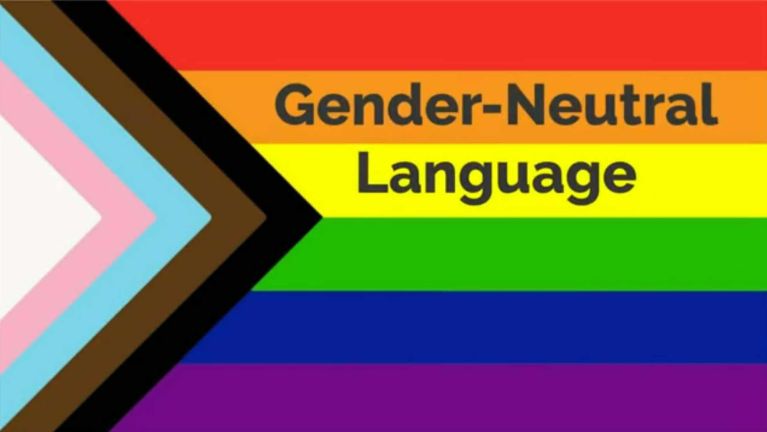Language practice is often gender-neutral
Gender-neutral language has a polarising effect. The linguist Carolin Müller-Spitzer explains why there is no need to argue about it.

Ms Müller-Spitzer, you conduct research into gender linguistics. What is the situation in Germany with regard to gender-neutral language?
We need to distinguish here between the situation in language practice and the situation in terms of societal debate. In language practice we already appear to have reached a consensus in many areas of gender-neutral language. Everything revolves around the so-called generic masculine, which involves using only the grammatically masculine plural form to refer to mixed groups of people. Various strategies are used to address this imbalance: dual forms such as “die Schülerinnen und Schüler” (using both the feminine and masculine plurals of the noun “pupil”) are well established and have long been used in common parlance, especially when addressing groups. Many people often do not even notice when gender-neutral words such as “die Lehrkräfte” (meaning “teaching staff”) are used – this is an approach known as neutralisation. When one thinks about terms like “gender-neutral language”, what is actually meant is always the third form, the use of symbols such as an asterisk or colon (Schüler*innen, Schüler:innen) in written language or a brief pause in spoken language to distinguish between the different genders. After all, this is relatively new.

We already use quite a lot of gender-neutral language. Many people often do not even notice it.
And the debate revolves around this third form.
Yes, and it is full of pros and cons, though in fact there is no need for such polarised arguments. We already use quite a lot of gender-neutral language for the simple reason that, since the women’s movement in the 1970s, we have been increasingly seeing a different allocation of roles in society. Women have more rights and women take on more roles, and this has resulted in discussions of and changes to the language. And in this sense we find ourselves fully in line with an international trend: this is something we are also seeing not only in English, but in Swedish, Norwegian and Spanish too.
Dieses YouTube-Video kann in einem neuen Tab abgespielt werden
YouTube öffnenThird party content
We use YouTube to embed content that may collect data about your activity. Please review the details and accept the service to see this content.
Open consent formWhich steps can bring about change?
It is not all that easy to precisely define the way in which language and real life are interrelated. That said, language can be seen as supporting the way we think, and also as a particular mindset. If I modify language, I may ultimately also be able to influence mindsets. We know for instance that the idea of employing women solely to fulfil a quota paints a completely false picture – as if women did not deserve the post in question. All empirical studies show that such quotas are more likely to weed out mediocre men than promote poorly qualified women. We also know that girls are more likely to respond positively if asked whether they wish to become an Ärztin or Anwältin – the female forms of doctor and lawyer, respectively – than if the question is posed using only the masculine form. The linguistic form builds a bridge for them, and why should we not empower them in this way?
Why is it important to be aware of gender-neutral language?
It is important to keep reminding oneself of its social purpose. It is about the fact that we want as free and inclusive a society as possible, and for our children ideally not to grow up with too firmly entrenched gender-specific role clichés. Language can play a part in this. This may appear arduous at first, but it costs nothing and there are many good strategies available.
Carolin Müller-Spitzer is a professor of linguistics at the University of Mannheim and section head at the Leibniz Institute for the German Language.
You would like to receive regular information about Germany? Subscribe here:



